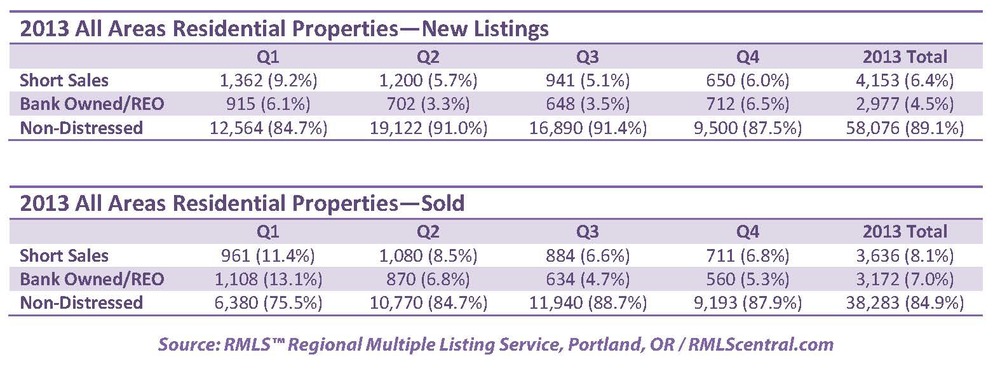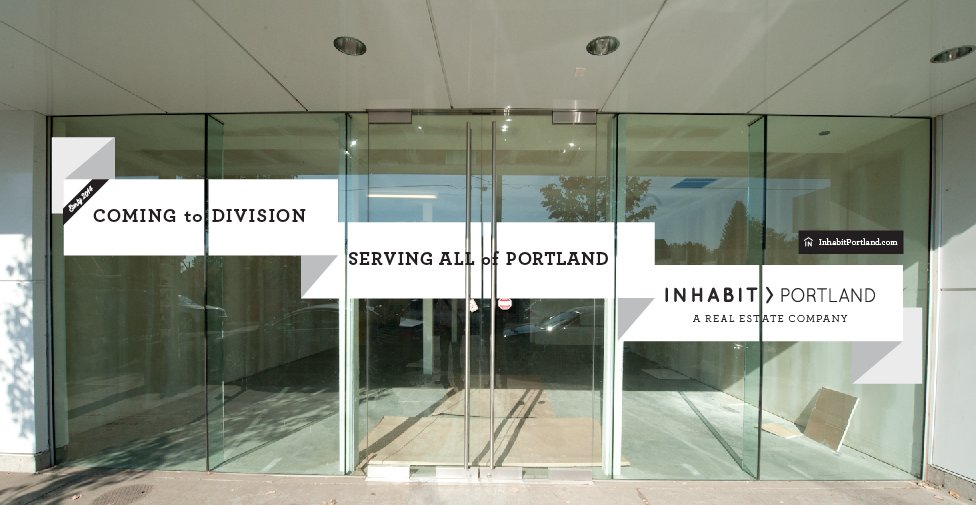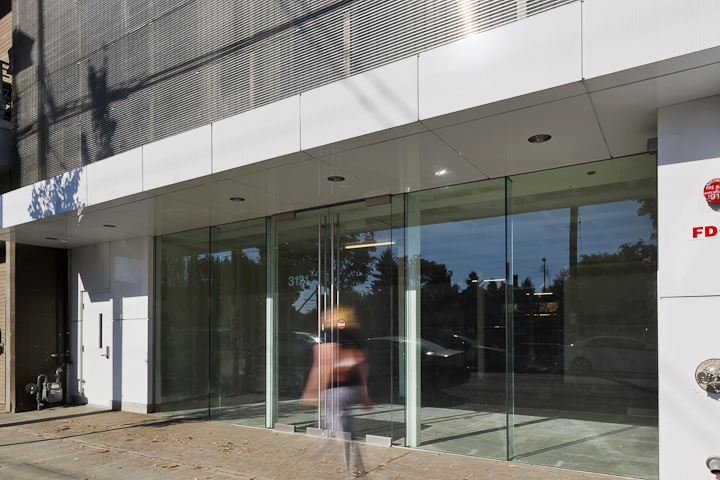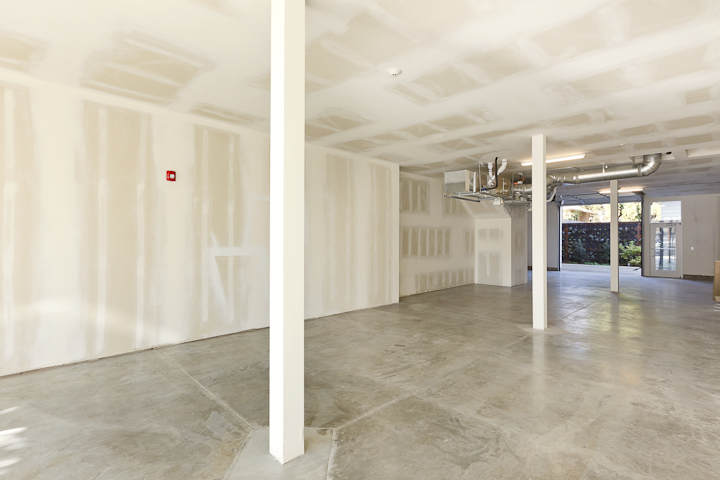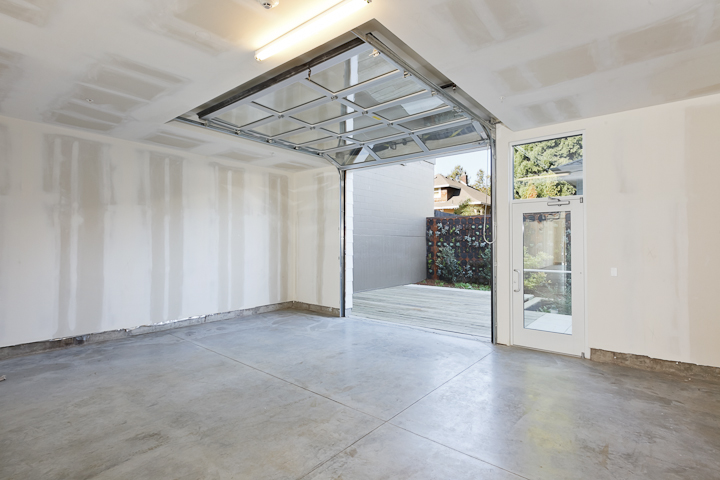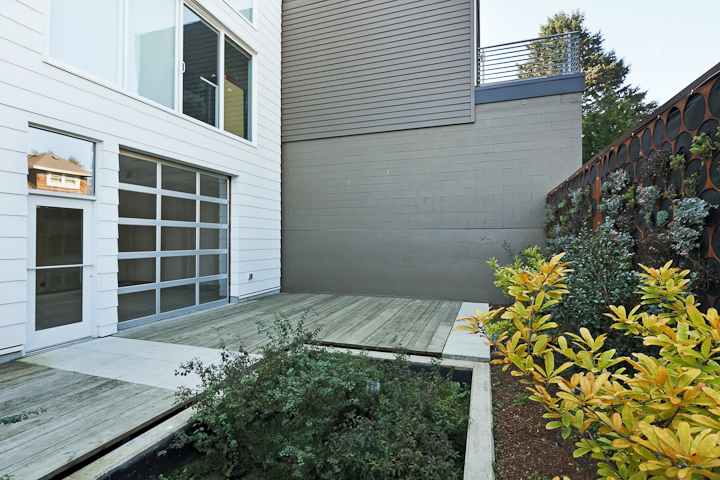This seems to be a subject much talked about amongst real estate agents, property managers, landlords, tenants, and homeowners (i.e. everyone). Yet, if you Google “Oregon tenant protection bill” or “Portland tenant rights bill”, all you’ll get is a few cut and dry articles from the Oregonian and other local news blogs and not much else. Most of what you’ll see will be about other legislation that has already passed.
What are we afraid to talk about? I’m a Portland area real estate agent and I eat complicated, controversial topics for breakfast. Okay, no, I usually eat eggs for breakfast. Sometimes cereal. Occasionally a snack bar…
But that’s beside the point. Let’s boldly go where few have gone before.
The original version of this article can be found here.
 Boldly blogging where no one has blogged before.
Boldly blogging where no one has blogged before.
The housing shortage is driving legislation.
People are passionate about this subject because Portland is in a housing shortage. We need approximately 24,000 units to meet demand (read my blog about all the people moving here). Barring economic catastrophe, a housing shortage will always cause home values to rise and rents to increase. This places undo pressure on tenants and home buyers, while current homeowners get to watch their net worth rise and landlords have the opportunity to raise rents.
The only real solution to a housing shortage is to build more housing but of course we only have so much space available. But, hey, we’re Portlanders, and if we can find a weird way to help solve this problem, by golly, we’re gonna leap down that rabbit hole.
Multnomah County and Enhabit (no relation to Inhabit) are launching a pilot project called “A Place For You”. It aims to build ADUs (accessory dwelling units or “tiny homes”) in Portland resident’s backyards. These will be used to house homeless families rent-free for 5 years in exchange for a tax abatement to the property owner. After 5 years, the homeowner gets to keep the ADU to be used as they see fit. The pilot project is starting with just 4 units but over a 1,000 homeowners have expressed interest.
It almost sounds like an episode of Portlandia.
 It’s okay if you don’t know what this is. What am I saying? No, it’s not okay. It will never be okay. Things will never be the same again!
It’s okay if you don’t know what this is. What am I saying? No, it’s not okay. It will never be okay. Things will never be the same again!
This is an interesting idea but creativity isn’t going to get us very far in the short term (and that doesn’t get politicians re-elected). The housing shortage is enough of a hot topic that politicians such as Ted Wheeler and Tina Kotek have thrown their weight toward repealing the statewide ban on rent control (although last year Ted Wheeler said he supported this for the state but not in Portland, where he would adopt other measures first, he seems to have now changed his position). In the election last year, Chloe Eudaly upset incumbent Commissioner Steve Novick despite having no political experience. Her grassroots campaign for the Portland City Council was focused entirely on tenants rights.
Now that we’re firmly into 2017 it means that politicians are putting their legislation where their mouth is.
In Portland, new rental ordinance is already in place.
Before we talk about the infamous House Bill 2004, let’s quickly take a look at the tenant protection ordinance that took effect back in February this year. This was an emergency ordinance brought forward by Chloe Eudaly and Ted Wheeler that was passed unanimously by the Portland City Council. It requires landlords to pay moving costs for tenants that are evicted without cause or for tenants that must move because rents have been increased by more than 10 percent in a 12 month period. The one exemption is for landlords that have only one rental unit. Moving costs paid by the landlord range from $2900 to $4500 depending on number of bedrooms.
Attorneys are already dueling in court over the legality of this ordinance but for now it stands.
 Not that kind of duel. Although court cases might be more interesting this way.
Not that kind of duel. Although court cases might be more interesting this way.
This brings us to the Tenant Protection Bill (HB 2004) that was recently passed (31 in favor – 27 opposed) by the Oregon House of Representatives and has now moved along to the state Senate for review. There are a lot of nuances to this bill and several compromises were made to get it this far. Remember, this is NOT law yet.
Here’s a few salient points of the pending bill.
- After 6 months, no-cause eviction of tenants renting month-to-month are banned (before 6 months no-cause eviction of tenants renting month-to-month are allowed with 30 days written notice).
- After 6 months, evictions are allowed for month-to-month (30 days after the effective date of this legislation) and fixed term tenants (immediately after the effective date) with 90 days written notice for specified reasons, such as renovations, repairs, when the property is scheduled to be demolished, or for the sale of the property. Landlords must pay one months rent to cover relocation expenses in this case. (However, if the reason is repairs/renovations, the landlord must offer a new rental agreement back to the evicted tenant before other potential tenants.)
- After 6 months, evictions are allowed for month-to-month and fixed term tenants with 30 days written notice for cause. (Examples of cause: non-payment of rent, violation of drug or alcohol program, pet violation, substantial damage, etc. There are additional provisions that govern “cause” and timelines that a landlord should be fully aware of.)
- If the landlord terminates the tenancy in violation of the provisions, the landlord would be required to pay 3 months of rent to the tenant in addition to potential damages. This applies to both month-to-month (30 days after the effective date) and fixed tenancies (immediately after the effective date).
- Exceptions to the above exist for landlords that own four or fewer rental units or for landlords that live on the property and own two or fewer rental units.
- The bill also allows cities and counties to adopt their own rent control program which effectively abolishes the statewide ban on rent control.
- An exemption to rent control is provided for any new residential development for a period of 5 years from the date of issuance of the first certificate of occupancy.
- If a city or county passes a rent “stabilization” program, it must provide landlords with a fair rate of return and a process for the the landlord to petition for permission to increase rent in excess of the amount allowed in the program when needed to achieve a fair rate of return.
 The rubics cube of government. Nuff said.
The rubics cube of government. Nuff said.
A few of the compromises that allowed this bill to pass include the exemption for landlords that own 4 or fewer units, reducing mandatory relocation assistance down to one month (originally the bill called for three months even when the eviction is for an allowed reason), and the 5 year exemption for new residential developments.
What does this mean?
So, does this bill seem sensible? Why would anyone object to it? Why was it passed on such a slim margin and why is the battle for it in the senate expected to be difficult?
I think the biggest concern is with point 6 – 8. Rent control is only fiercely debated when you don’t talk to economists. Meaning, economists largely have a consensus of opinion that rent control results in a reduced supply of property to the market (which of course drives rents and home prices even higher).
Wait a second, reduces the supply? Didn’t I just say earlier that this problem is a result of a housing shortage?
Based on historical data, most economists viewpoints, and studies that have been conducted on rent control, enacting rent control (or “stabilization”) causes housing shortages to become worse than if no controlling measures were put into place. I don’t like it when legislatures pass bills with provisions that aren’t supported by the data. (Read this article and this one and this one to gain some perspective on what economists think about rent control)
I don’t think the 5 year exemption for new construction or vague “fair rate of return” language is enough to curb the negative side effects of rent control but politicians only have so many tools in their belt when in comes to housing. Those tools tend to be very blunt instruments. Even though a screwdriver might be needed, we’re instead getting a hammer. Or maybe a mallet. Or maybe even a sledgehammer. Except I don’t think Peter Gabriel is the solution here.
 This analogy is too good for a caption.
This analogy is too good for a caption.
The merits of points 1 through 5 above really come down to your point of view. I won’t delve into those here other than to say that I see both the positive and negative ramifications to being this restrictive about evictions but I’m open minded about the ideas.
HB 2004 hasn’t passed the senate yet (it was just referred to the Human Services committee). I’ll be following along to see if it passes and is signed by the governor, or if it dies, or if it becomes reborn as something more palatable. This is an interesting time for anyone that is a landlord or tenant!
Do you own a rental property? If so, what are your plans? If this bill passes, much of the legislation will go into effect either immediately or within 30 days. I’m a Portland area realtor and can assist you in deciding what course of action makes sense for your investment. Contact me if you have questions.
– Brandi Whitaker





 Boldly blogging where no one has blogged before.
Boldly blogging where no one has blogged before. It’s okay if you don’t know what this is. What am I saying? No, it’s not okay. It will never be okay. Things will never be the same again!
It’s okay if you don’t know what this is. What am I saying? No, it’s not okay. It will never be okay. Things will never be the same again! Not that kind of duel. Although court cases might be more interesting this way.
Not that kind of duel. Although court cases might be more interesting this way. The rubics cube of government. Nuff said.
The rubics cube of government. Nuff said. This analogy is too good for a caption.
This analogy is too good for a caption.
 Online scams nowadays often have more to do with social engineering than serious hacking. But protecting your data is very important, too.
Online scams nowadays often have more to do with social engineering than serious hacking. But protecting your data is very important, too. Don’t let go of your control! (haha, see what I did there)
Don’t let go of your control! (haha, see what I did there) For sale online in southeast Portland for $450,000. Just take my money, already.
For sale online in southeast Portland for $450,000. Just take my money, already. You knew this post had to include a picture of the ubiquitous hoodie-wearing hacker, right?
You knew this post had to include a picture of the ubiquitous hoodie-wearing hacker, right?
 The joy of understanding zoning.
The joy of understanding zoning.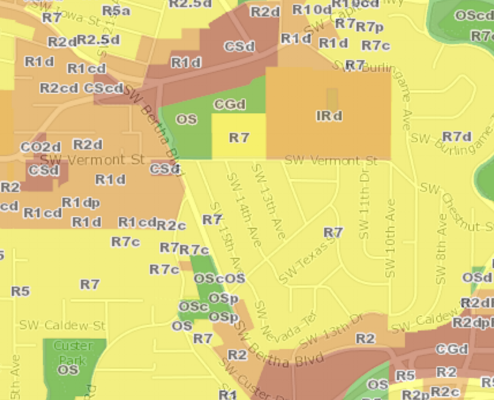 This is a zone map of a little piece of Portland. You definitely do not need to understand what all this means.
This is a zone map of a little piece of Portland. You definitely do not need to understand what all this means.


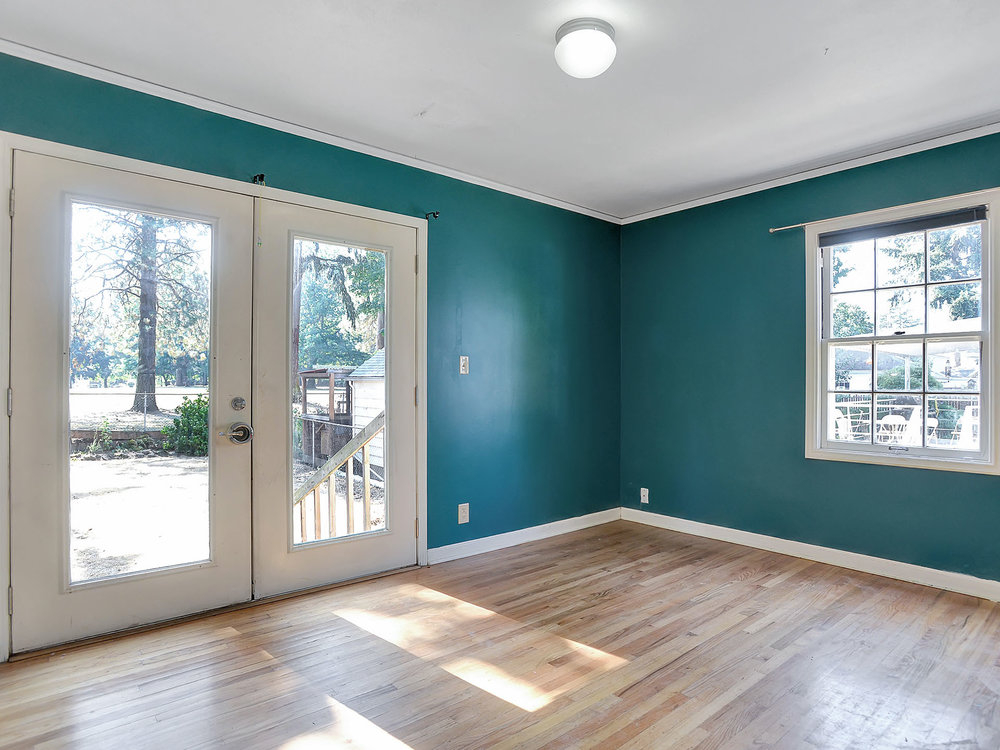












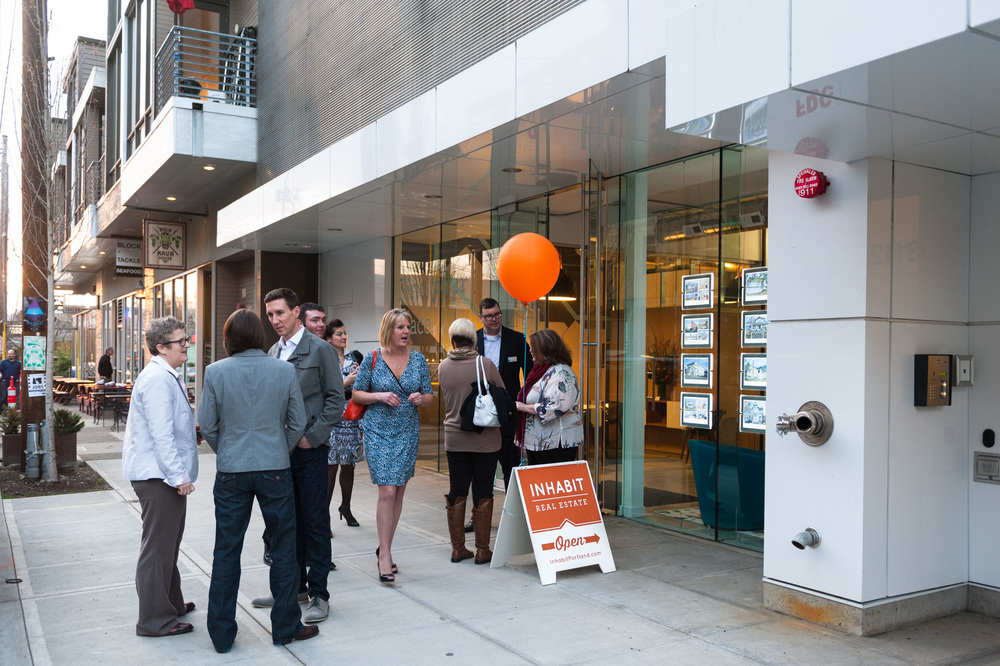



 This past weekend at the 15th Annual Northwest Design Awards Ceremony in Seattle, Kim Hagstette of Maven Interiors was awarded first place in the largest category of the night, “Small Design Firm Luminary.” Luminary is defined as ‘a person who inspires or influences others, especially one prominent in a particular sphere’.
This past weekend at the 15th Annual Northwest Design Awards Ceremony in Seattle, Kim Hagstette of Maven Interiors was awarded first place in the largest category of the night, “Small Design Firm Luminary.” Luminary is defined as ‘a person who inspires or influences others, especially one prominent in a particular sphere’.


